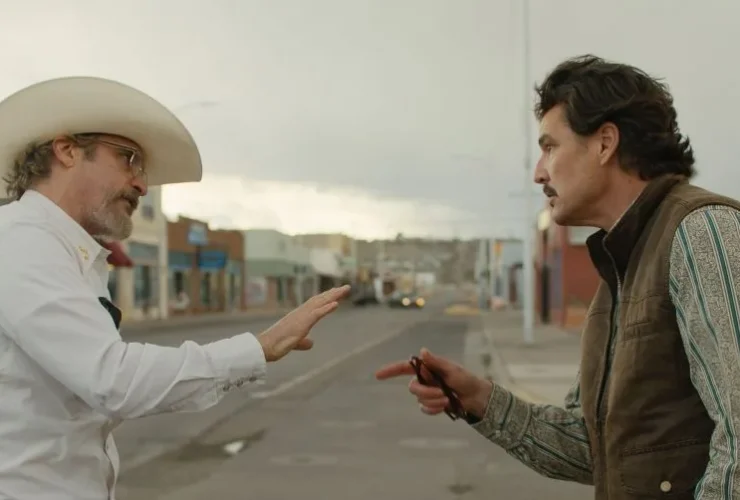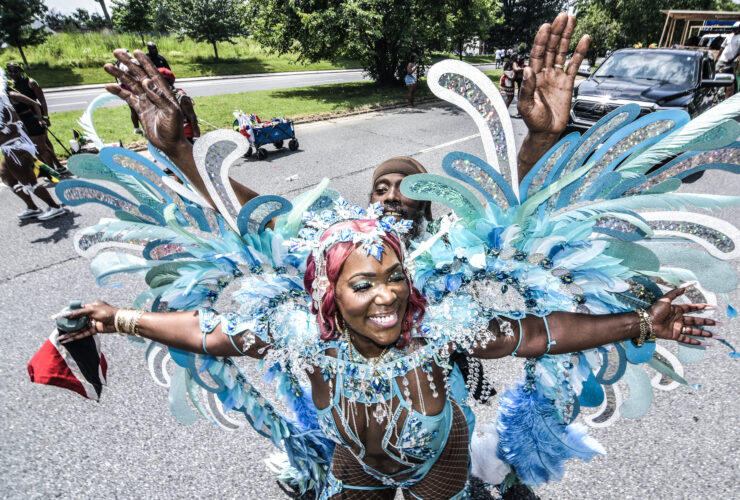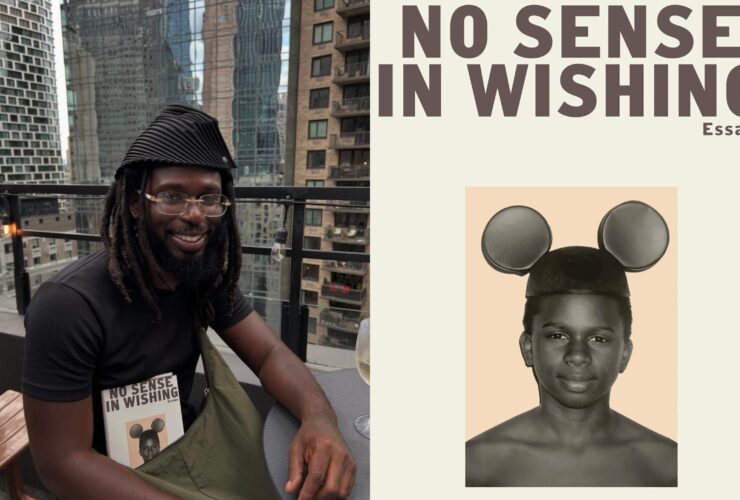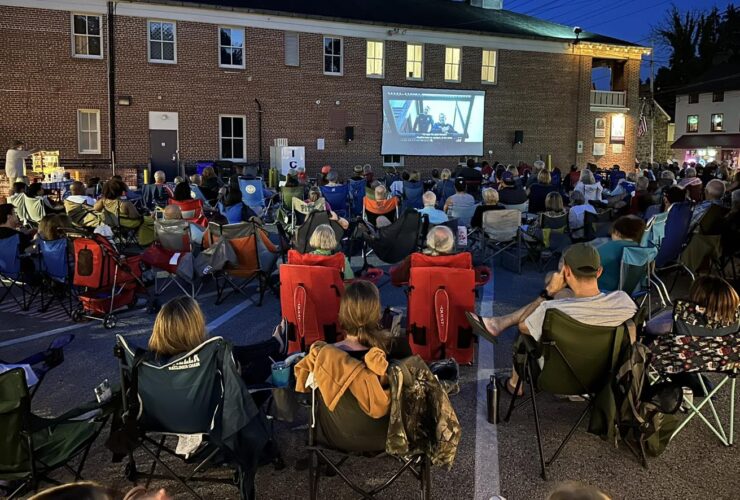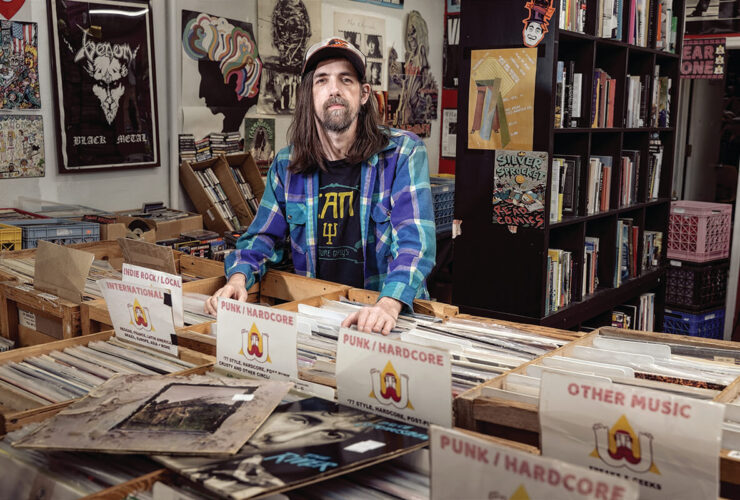A Conversation with Dan Deacon
The patron saint of Baltimore’s DIY music scene and co-founder of the Wham City arts collective sits down for a chat.
By Lydia Woolever & Gabriella Souza

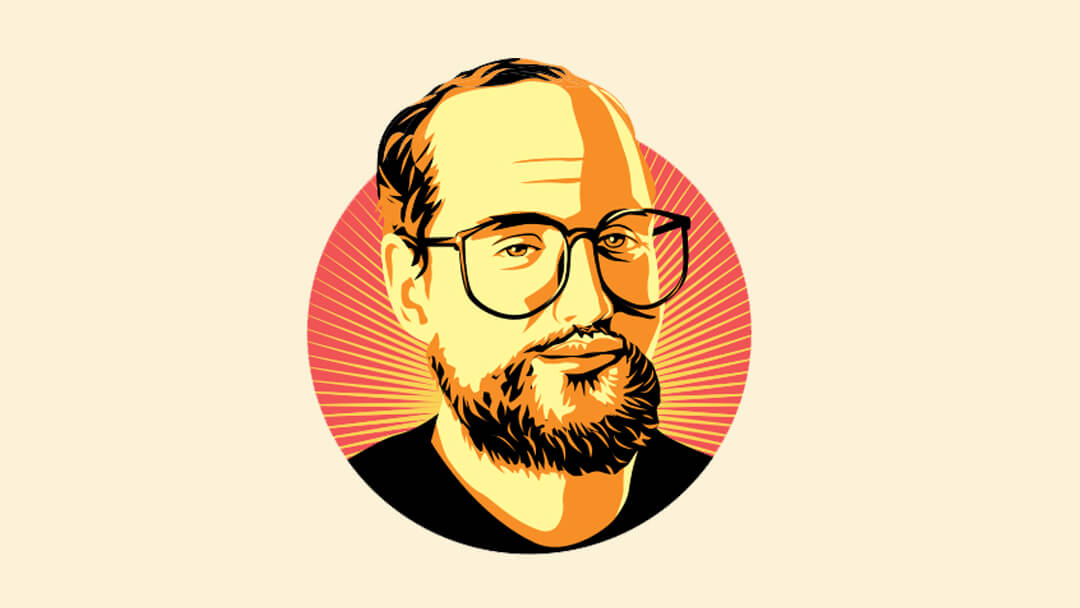
-Illustration by Daniel Hertzberg
Dan Deacon has helped foster an eclectic community of local artists and musicians that has, like its city, minutely and dramatically changed over the past decade. On the heels of his acclaimed new album, Gliss Riffer, the classical composer-turned-electronic artist sits down in his old Station North studio to talk about his early days in Baltimore with the Wham City crew, music venues, and squatter’s rights.
Baltimore magazine: So what was it like when you first moved here from New York?
Dan Deacon: I moved directly from college and didn’t really know what to expect. I had two friends who lived in Baltimore and they told us about the Copycat [artist residences]. We moved in May, not knowing it would [eventually] be full of students. It was a pretty quiet building. I had no idea that in the coming months it was going to become insane. But we didn’t really know anybody or what to do. We had no Internet and I think only one of us had a cellphone.
BM: It was what, 2003?
DD: 2004. The main places we went were The North Inn, to get liquor, and the library, and then we’d try to figure out what was happening in Baltimore. The Internet was structured very differently back then, so it was a challenge to find things to do. It was a lot of crude research and we kind of kept to ourselves. I think a lot of the early core [group] wasn’t sure how long this move was going to last. But we started staging this Wham City production of Beauty and the Beast, like a musical review on a $40 budget where we did all the songs as they appear on the cassette tape.
BM: Oh man, those songs are amazing.
DD: Oh, they’re the best. And on the tape, they’re out of order. So Beast dies . . .
BM: Right away?
DD: No! [Laughs] Not like right away. There were only five of us so we were constantly switching parts and characters. I think that was a lot of people's introduction to us as both human beings and collaborators. It set the tone for us being weird and it kind of stayed that way. And then once the building filled with people again, come August, like, all of a sudden, we were throwing—instead of plays—ragers. I would play, and this band Blood Baby would play, and if we ever didn’t have another band, we’d just make one up, put them on a flier, and hope they’d become a real band.
BM: Did any?
DD: Yeah, Santa Dads.
BM: Great band name.
DD: They were a great band. I didn’t know there was a thing with the building where you couldn’t really have shows, so I was putting fliers everywhere, trying to get them in the paper, and for some reason, for years, it was fine. We didn’t have any problems with the cops. The landlord knew what was going on. They had a real laissez-faire approach and loved pretending it wasn’t happening. That, of course, came crashing and burning three years later. I think Whartscape [Wham City’s underground music festival, 2005-2010] is the main way I became connected to a larger portion of the scene than just my friends. And the Round Robin Tour [of local bands in 2008] was something that really made me think about Baltimore differently. I’d love to do another one.
BM: There are so many new bands now, too.
DD: For sure. The scene used to be very regimented. It seems to be so much more fluid now. There’s a lot more integration. I think The Crown [a Station North venue and bar] has a lot to do with it, just being that nexus for so many different types of people and music. It’s a really exciting time.
BM: Maybe people are figuring out they have a lot more in common than they thought.
DD: I hope so. I think a lot of it has to do with the accessibility of space and people feeling comfortable in particular environments. For a huge music scene, Baltimore has very few venues. There are a lot underground but they’re not accessible to everybody. They won’t put the address or won’t advertise at all; it’s just word of mouth. I understand why they do it, because they don’t want to be shut down, but that creates an esotericism around the space. It restricts people hearing about it and makes them feel like maybe they shouldn’t go.
BM: Like they’re not cool enough.
DD: Exactly. Not cool enough is definitely how I feel in more of these places. The Crown [is great] because it can constantly promote, which not only lets people know something exists but also that you can and should come. That fosters an environment of openness and accessibility. Metro [Gallery] has really improved a lot in the last couple of years. Those two spaces fill a void that was missing. But there still isn’t anywhere for like 1,000 people. Unless you go to Rams Head.
BM: Or The Lyric, which is exclusive in its own way. With places like The Crown and Metro Gallery connecting the music scene and its audiences, do you think that’s something that will continue to grow?
DD: I think it is, with, like, the group that’s getting Le Mondo together. I’d love to see Abdu Ali get a space. I feel like he’s a major reason why Baltimore is becoming more and more like what Baltimore actually is. He’s such a driven person—driven by his own passions for his own music, and also for the city, and for an actual community. It really excites me—his programming, and TT [The Artist], and [Baltimore Club producer] Schwarz, who is a really great bridge between people. I’d love to see Amy Reid from Chiffon curate a space. But the problem with Baltimore is there are so many amazing spaces that are all owned by . . .
BM: People who have had them forever and don’t want to give them up.
DD: I don’t know how it works at all and don’t want to misquote how it actually happens, but there is no incentive for people to fix their vacant buildings.
BM: That’s one of the things street artists like Gaia and Nether were doing with their murals—calling out those landlords.
DD: It’s weird that people play Monopoly with Baltimore. It sucks for the city. I would love to change squatter’s rights to make it easier to squat a building. Because if you could squat it, people would actually have to try and do something with it, so it doesn’t get squatted, you know what I mean? That’s what made Berlin Berlin post-war, because people were like [looks around] ‘Let’s live here!’
BM: It’s not like you want someone to just come in and completely change the neighborhood, but just let someone live there.
DD: That’s the problem—there’s no room for glacial change. If row homes can’t get fixed individually, they’re just waiting to sell the whole block to a developer. That’s the formula for gentrification, rather than a neighborhood being able to evolve or a neighbor buying the adjacent house. You visit these other cities with these beautiful old theaters, and there are so many of them in Baltimore, but even if someone were to try to open a 9:30 Club here, where could they do it? Before The Crown opened, I don’t think anyone thought a space like that could exist in Station North, and it’s still only, like, a 100-person venue. Beach House and I talk about that all the time. Where do we play in Baltimore?
BM: You’d think there were more warehouse venues, too.
DD: And legal ones. And not really dangerous. That’s what I would like. I think if squatting rights changed, you’d see the city rapidly evolve.
Dan Deacon compares music creation to vegetable gardening.
I like to think about an album as, say you grew a tomato. You remember getting the seeds, putting them in the dirt, patting the dirt down, and then the first couple of sprouts come out, and you’re like, ‘It’s gonna work!’ It starts growing into the vine, then you get that weird metal thing to put around it, and the vine grows up it, and eventually the first tomato starts to grow. It gets bigger and you’re thinking, ‘What’s the perfect time to pick it?’
Eventually you pick it, and it’s you and your friend and you’re having a sandwich. You cut the tomato and you take that first bite and you taste every moment of that tomato’s growth, you know? And your friend is just like: [pause] ‘Nom, nom, nom, nom, nom!’ It’s just a tomato to them. They don’t have any of that attachment. They’re like, ‘Oh, yeah, yeah, I’ll have tomato, thanks.’ When you make a record, you remember when you made every part, and then you share it to the world and they’re like, [pause] ‘Cool song!’
So you want to make sure you’re sharing music that’s actually worth sharing. You want to make sure that you aren’t just sharing the time you put into it. You want it to be beautiful too, you know what I mean? Whenever someone tells me they like my music, it’s the equivalent of them being like, ‘These tomatoes are great!’
-
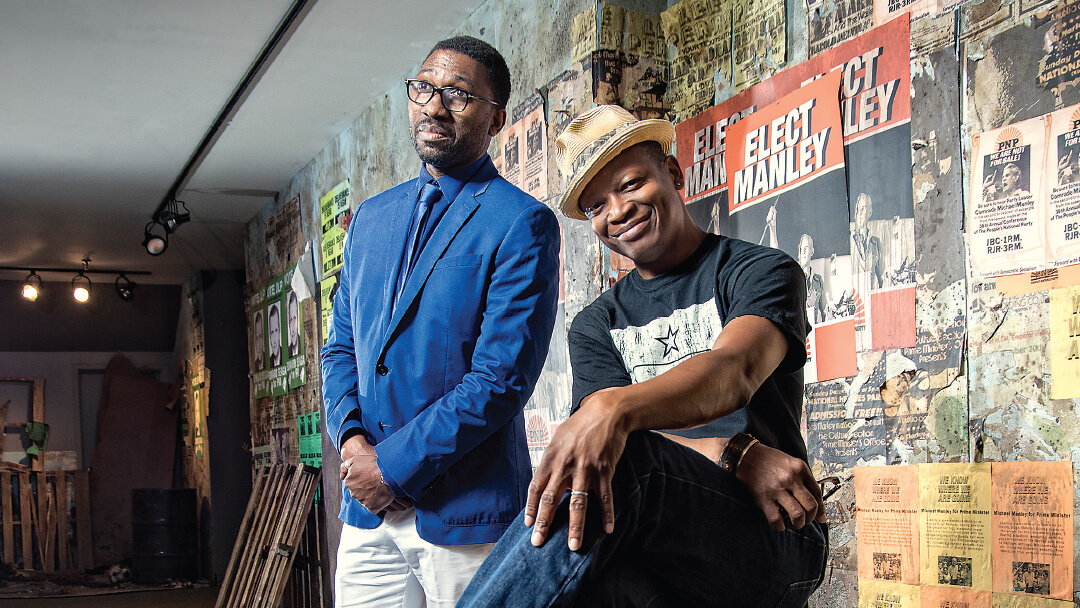
Kwame Kwei-Armah & Lawrence Gilliard Jr.
-

Reverend Donté L. Hickman Sr. & David Warnock
-

David Simon & Laura Lippman
-
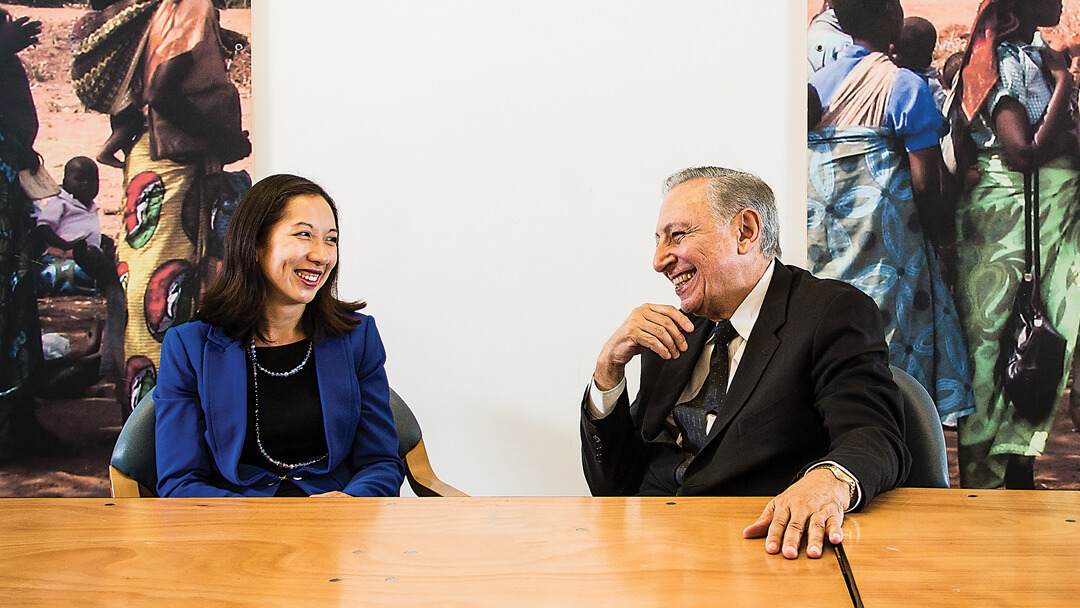
Dr. Leana Wen & Dr. Robert C. Gallo
-
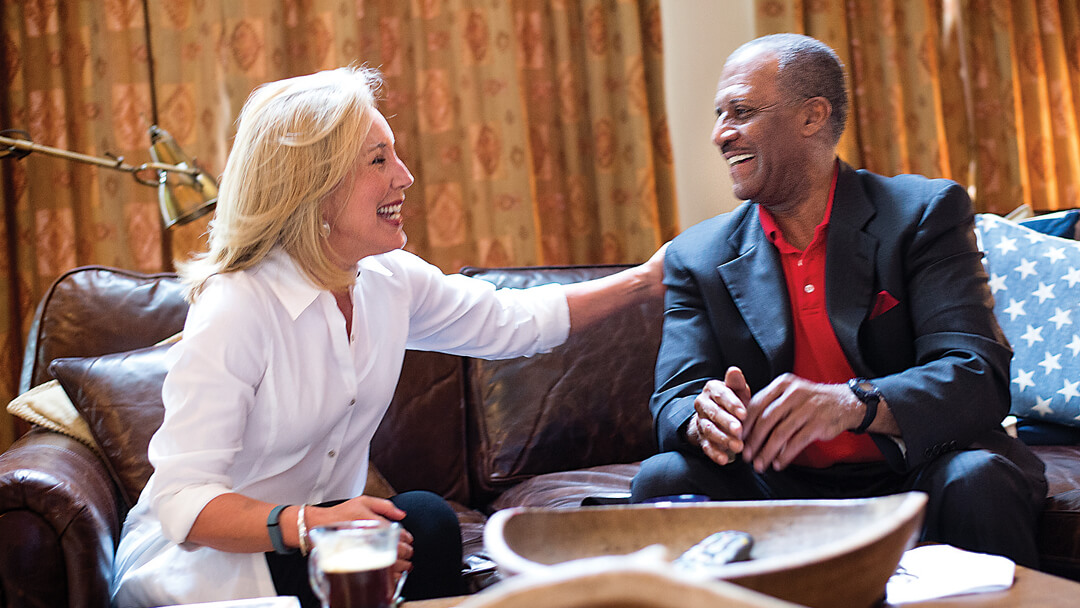
Denise Koch & Stan Stovall
-
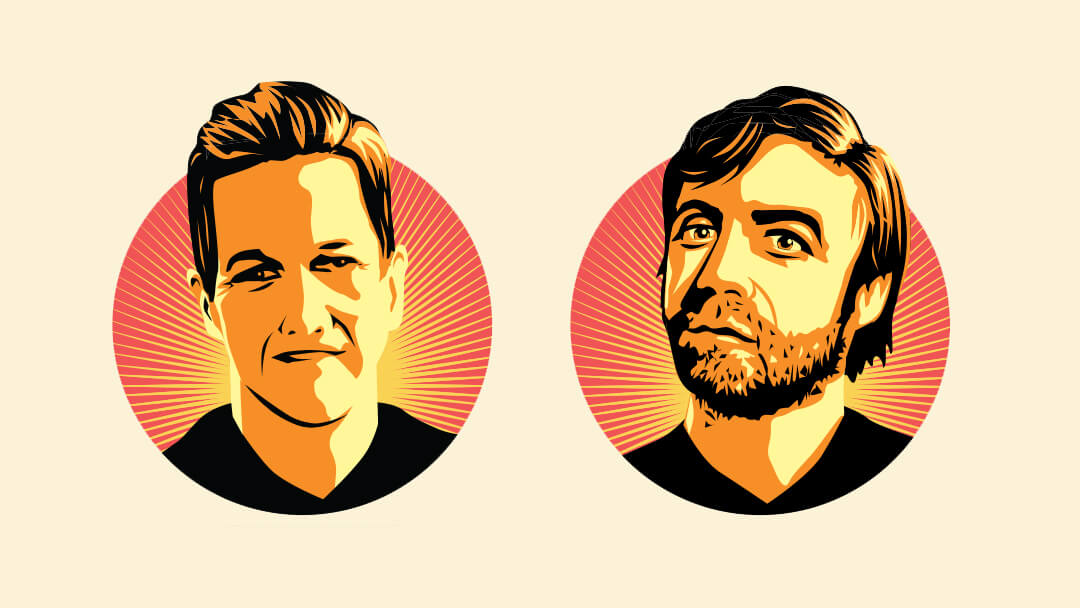
Josh Charles & Derek Waters
-
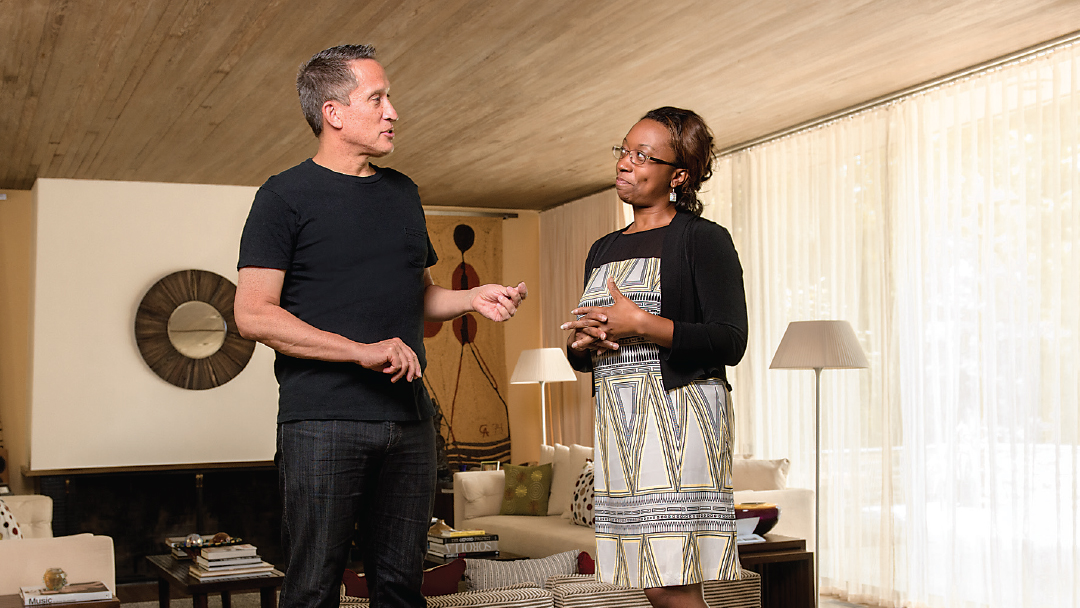
José Antonio Bowen & Shanaysha Sauls
-
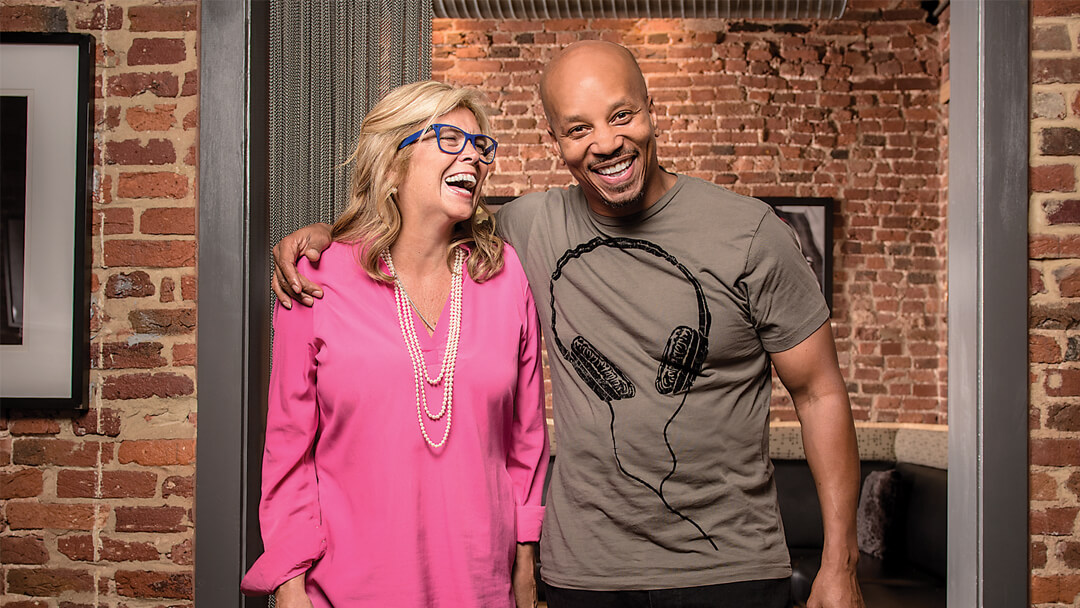
Laurie DeYoung & Konan
-

D. Watkins & Clarence M. Mitchell IV
-
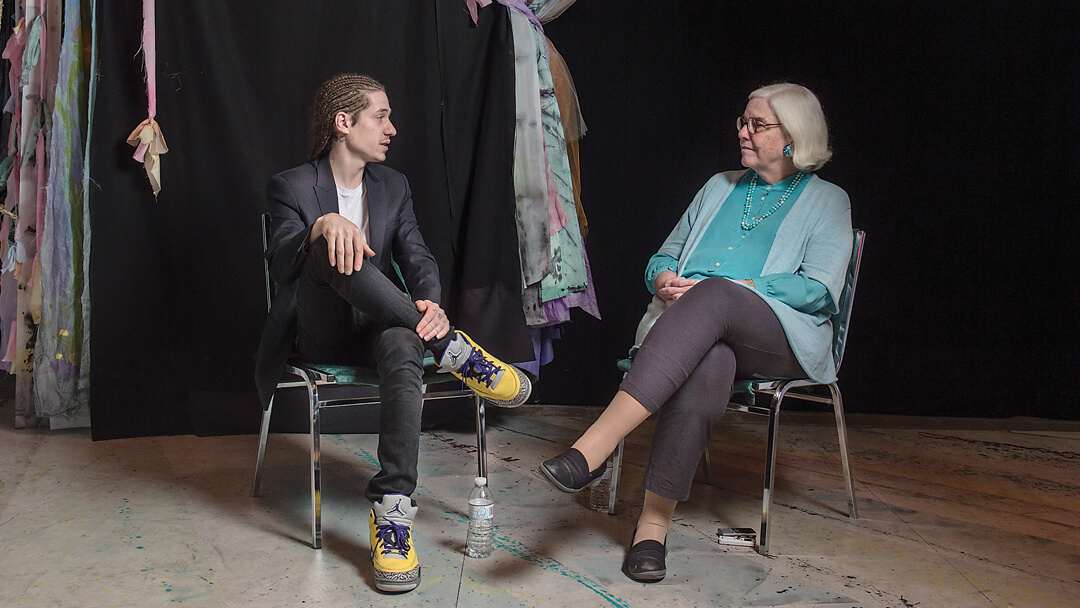
Gaia & Doreen Bolger
-

Deb Tillett & John Davis
-
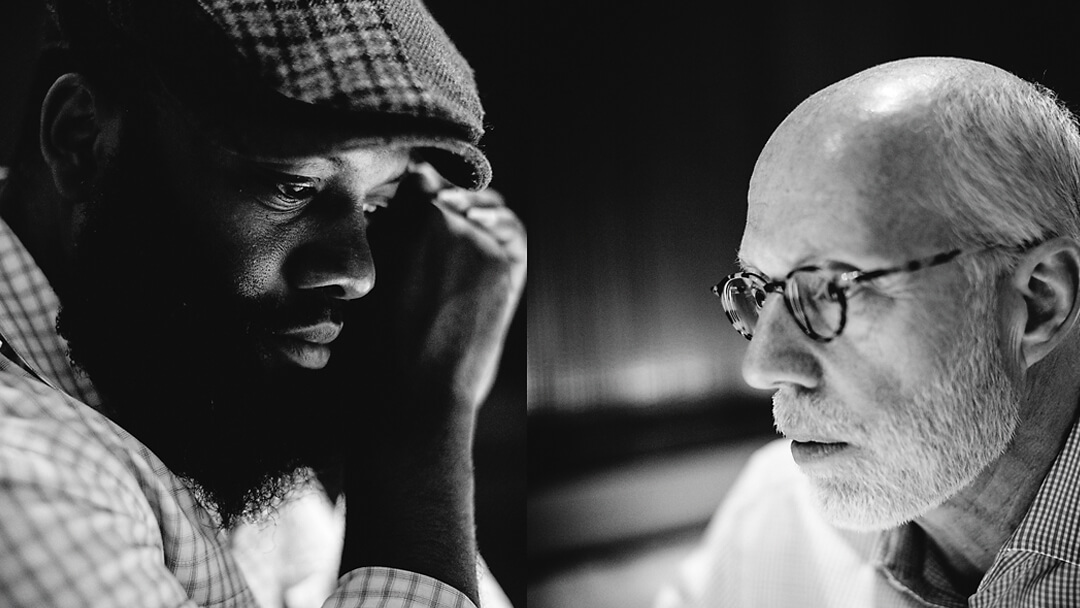
Damian Mosley & Linwood Dame
-
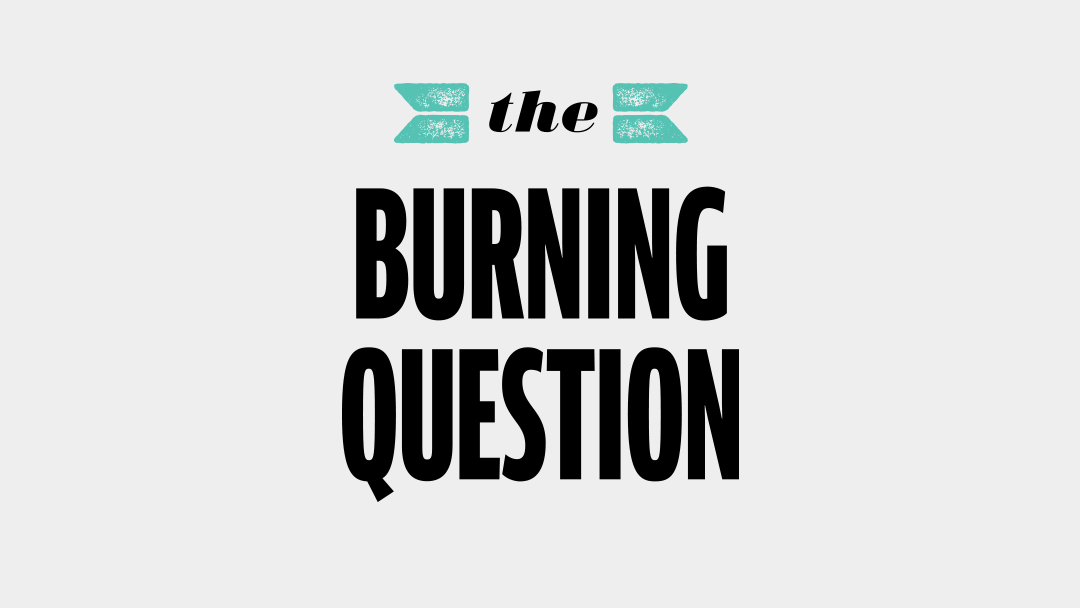
The Burning Question
-


